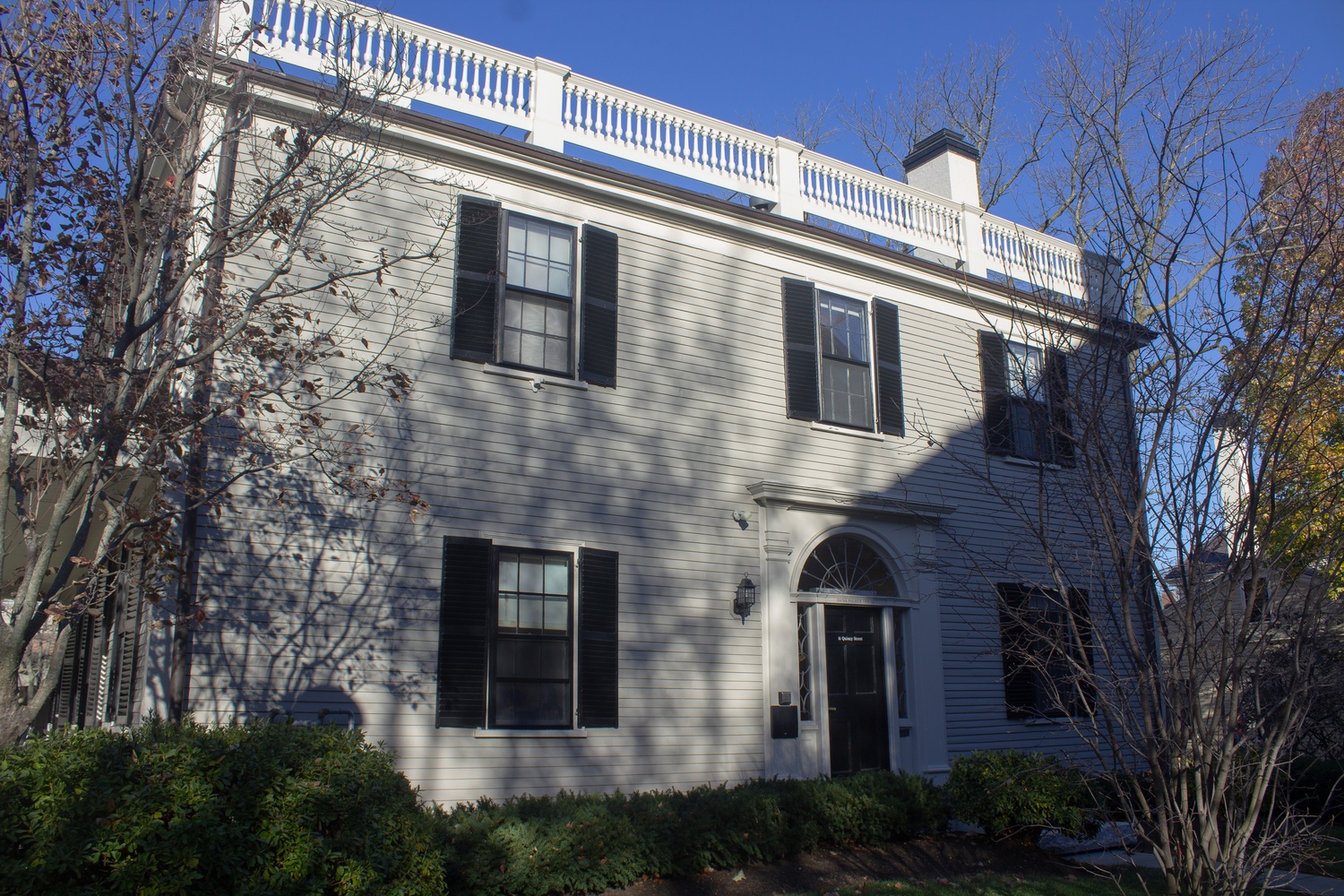
News
Harvard Grad Union Agrees To Bargain Without Ground Rules

News
Harvard Chabad Petitions to Change City Zoning Laws

News
Kestenbaum Files Opposition to Harvard’s Request for Documents

News
Harvard Agrees to a 1-Year $6 Million PILOT Agreement With the City of Cambridge

News
HUA Election Will Feature No Referenda or Survey Questions
Harvard To Offer New Freshman Course on ’Human Sciences’

Harvard will offer a new freshman intro course to the Arts and Humanities, Human Sciences 15, next spring as part of an ongoing push to rethink its humanities curriculum.
Human Sciences 15, which will be taught by Comparative Literature professor John T. Hamilton, intends to introduce students to techniques for studying cultural artifacts, from literature to artwork. Hamilton said the course would begin in Spring 2026, though it has yet to be added to Harvard’s course catalog for next year.
According to Hamilton, Human Sciences 15 will be “a real basic needs course that orients students to do anything in languages, in literature, in cultural studies, or area studies but also in philosophy and music and the visual arts.” Its first year, he said, will be a “trial run” to gauge student interest.
Last summer, Arts and Humanities Dean Sean D. Kelly said it was one of his priorities to develop a set of stronger introductory courses in the division, after a two-year-long strategic planning process found that the division had trouble retaining undergraduates past their first year.
This is the second reported change to Harvard’s introductory course lineup. Earlier this year, the division announced that it would replace Humanities 20, its introductory arts colloquium, with History of Art and Architecture 10 — downgrading it to a department-level course, though it remains open to all undergraduates.
Hamilton said he believed the initiative would help get students on the same page. Right now, he said, freshmen in the humanities are “thrown into the world.” Without standardization, students have “a shopping mall of choices.” He posed: “Where do you go?”
As a result, Hamilton said students often come into his classes on unequal footing.
“If I want to talk about a metaphor — not everyone really understands what a metaphor does or how it operates. Some do, but a lot of people do in a sort of vague way or an intuitive way,” he said. “It would be really useful if everyone sort of had this basic terminology at their fingertips.”
“It’s going to give them a basic set of concepts and tools that they can then go and enter and concentrate in music, concentrate in Slavic languages, concentrate in comp lit or philosophy,” he added.
Hamilton said he believes the humanities are themselves a science — human science.
“In the humanities, we create knowledge in ways that are vastly different from the life sciences and natural sciences and the social sciences, etcetera, but it’s science nonetheless,” Hamilton said. “There seems to be a false dichotomy in place, where you have the humanities on the one hand and the sciences on the other.”
—Staff writer Ellen P. Cassidy can be reached at ellen.cassidy@thecrimson.com. Follow her on X at @ellenpcassidy.
—Staff writer Catherine Jeon can be reached at catherine.jeon@thecrimson.com. Follow her on X at @cathj186.
Want to keep up with breaking news? Subscribe to our email newsletter.
Most Read
- Harvard Dismisses Leaders of Center for Middle Eastern Studies
- More Than 80 HLS Professors Denounce Trump Admin Attacks on Law Firms in Letter to Students
- 2 Years After Affirmative Action Ruling, Harvard Admits Class of 2029 Without Releasing Data
- FAS Dean Asks Center Directors To Show Compliance With Viewpoint Diversity Guidance
- Harvard Agrees to a 1-Year $6 Million PILOT Agreement With the City of Cambridge
From Our Advertisers

Over 300+ courses at prestigious colleges and universities in the US and UK are at your disposal.

With innovative financial tools combined with financial education, Collegiate empowers students to take control of their finances and build confidence in their money management skills.

Serve as a proctor for Harvard Summer School (HSS) students, either in the Secondary School Program (SSP), General Program (GP), or Pre-College Program.

With an increasingly competitive Law School admissions process, it's important to understand what makes an applicant stand out.

Welcome to your one-stop gifting destination for men and women—it's like your neighborhood holiday shop, but way cooler.

Admit Expert is a premium MBA admissions consulting company, helping candidates secure admission to top B-schools across the globe with significant scholarships.
